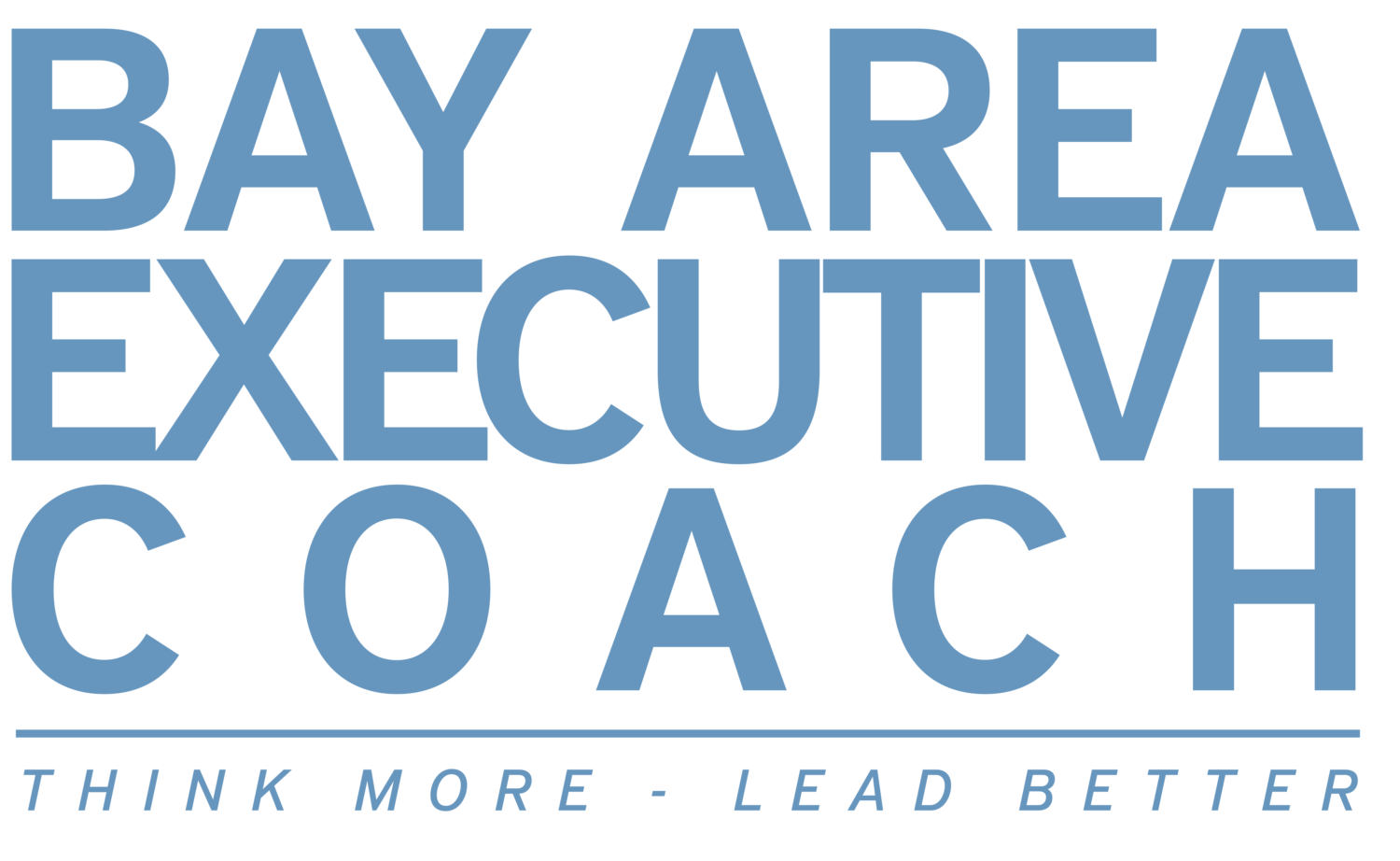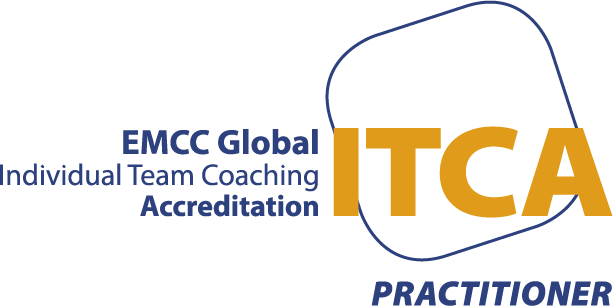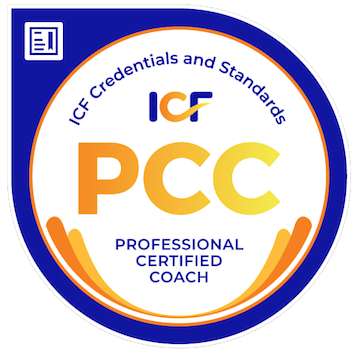Isaac has learned the hard way that self-management is essential to being an effective business leader. After being fired from a great job for blowing his top at a subordinate, Isaac sought the guidance of a leadership coach who helped him to develop his emotional intelligence, which includes the practice of self-management. Over time, Isaac learned how to take adversity and setbacks in stride and self-manage his emotions in constructive ways. Now in his new job as general manager of a major hotel chain, Isaac presents a calm and rational presence in times of turmoil. His staff respect and appreciate his steady hand at the wheel and give him more discretionary effort in response.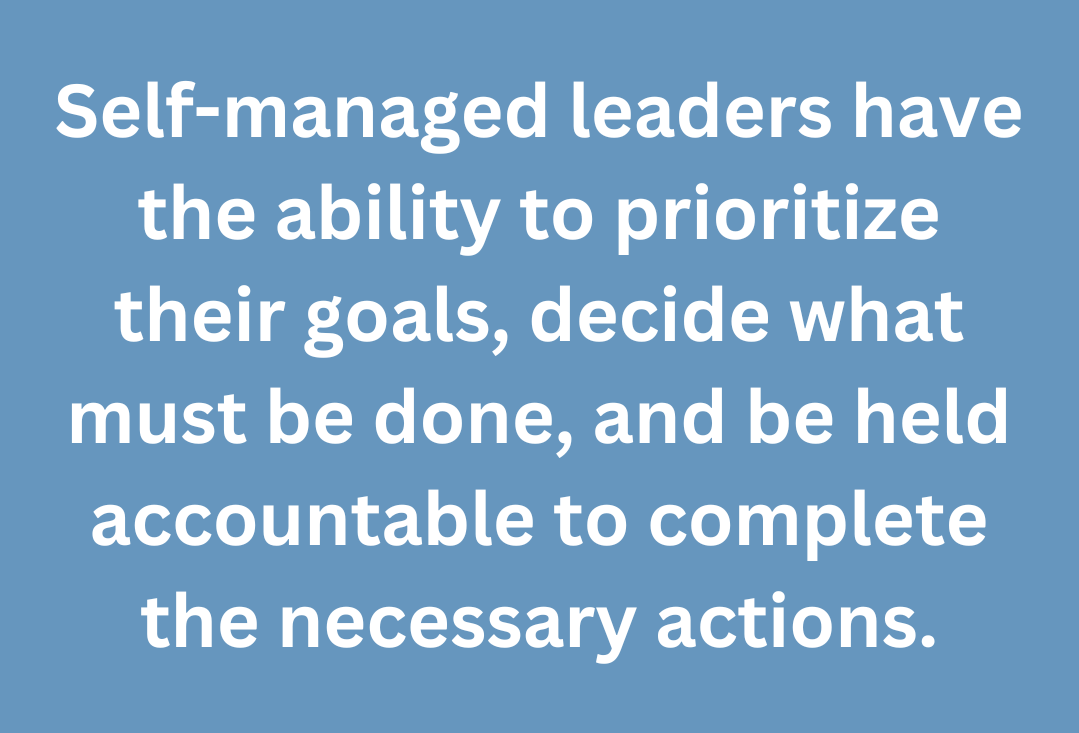
As Sam realizes and Isaac found out, self-management of one’s emotions, habits, and time is an important component of the emotional intelligence that supports today’s effective business leader. Without self-management, someone (perhaps already on a short fuse) can become a loose cannon, and the damage that person inflicts – to team morale and company performance – can be difficult if not impossible to repair.
What is Self-Management for Leaders?
Self-management for leaders is based on the long-standing best practices of time management, personal management, values-based leadership, and leading by example, all pillars of emotional intelligence. Self-managed leaders have the ability to prioritize their goals, decide what must be done, and be held accountable to complete the necessary actions.
Self-management involves motivating, coaching, and leading ourselves to become the best we can be in our personal and professional lives. Some experts in the field have even suggested we change “self-management” to “self-leadership” because this skill area is so essential to everything a business leader does.
Two particularly important aspects of self-management are illustrated in our opening scenarios with Sam and Isaac:
- Quickly adapting to new circumstances
- Effectively managing your emotions in difficult situations
The business landscape is constantly changing and sometimes these changes don’t seem on their face to be beneficial. So, how does one best handle new and/or difficult circumstances? Surely not by going on the warpath. While frustration and anger are difficult emotions to control, they can be contained through the use of emotionally intelligent non-destructive techniques that defuse and calm our inner self before it becomes our outer self.
Self-management self-assessment
Sam eventually realized that his intense outbursts cause a lot more harm than good. Isaac recognized his need for help in this area and was eventually able to incorporate self-management of his emotions into his leadership style. In assessing your own level of capability, consider your response and behavior in these areas:

Time management: Leaders need to be adept at managing their time to prioritize, focus, and balance during very hectic, fast-changing environments. The demanding pace of business requires that leaders be able to decide changes on the fly, often relying on their own judgment. Leaders who can organize themselves quickly, manage their calendar, stay on top of the important things, and maintain focus amidst noise and distraction will always be in high demand. How well do you manage your time?
Self-control: The first step to achieving emotional self-control is to recognize emotions and how they affect us. The next step is to pinpoint the emotions we want to control. Famed psychologist Albert Ellis theorized how events activated our thoughts and beliefs to trigger emotional response. By identifying wrong thoughts or beliefs and replacing them with more realistic and flexible ones, Ellis believed that a person could better control their emotions. People who have trouble with self-control often report that they tend to think the worst when something unexpected happens and a plan isn’t going the way it was supposed to. Does this happen to you? Can you look back at past events and see that they didn’t turn out as badly as you might have thought at first? Start to train yourself to tone down the escalating negative emotions that first grip you when something’s going sideways. Replace these thoughts and feelings with ones that are more realistic and flexible. It takes time and effort and you’ll see progress if you stick with it. How strong are you at controlling yourself?
Trustworthiness: Self-management also means saying what you do and doing what you say. Can you manage yourself to keep your word? Can you keep yourself from saying things or making promises that are impossible or unrealistic for you to fulfill? Cultivate the trust of the people you manage by being trustworthy in every interaction with them. Trust, like truth, influences communication, information sharing, cooperation, and productivity. A good leader creates trust through their daily behavior and actions. Are you as trustworthy as they come?
Adaptability: Why can’t the square peg fit into the round hole? Because neither side will adapt to a new reality. As a leader you must be able to adapt to change. How well a leader embraces change can be a vital measure of their effectiveness. And not only do leaders have to embrace change, often they have to sell it to the people who work for them. The more adaptive you show yourself to be, the more likely your teams will do the same. They will follow the leader. Show them you are adaptive and open to changing as the situation calls for it. This is a key leadership trait needed for success in the 21st century. Do you display adaptability regularly?
Conscientiousness: A conscientious leader values time and effort, they dedicate themselves to the tasks at hand, and they have a strong concern for laws and ethics. Conscientious leaders have high ethical standards and expect others to as well. Where do you rate in this respect?
Initiative: Good leaders go beyond being simply reactive and take the initiative to find and solve problems in a proactive fashion. They meet challenges head on and find new ways to do more. They take charge of their own learning and lead by example. Their initiative and drive is self-generated and is at the core of their self-managed approach to life and work. Are you the type of leader one would describe as taking initiative?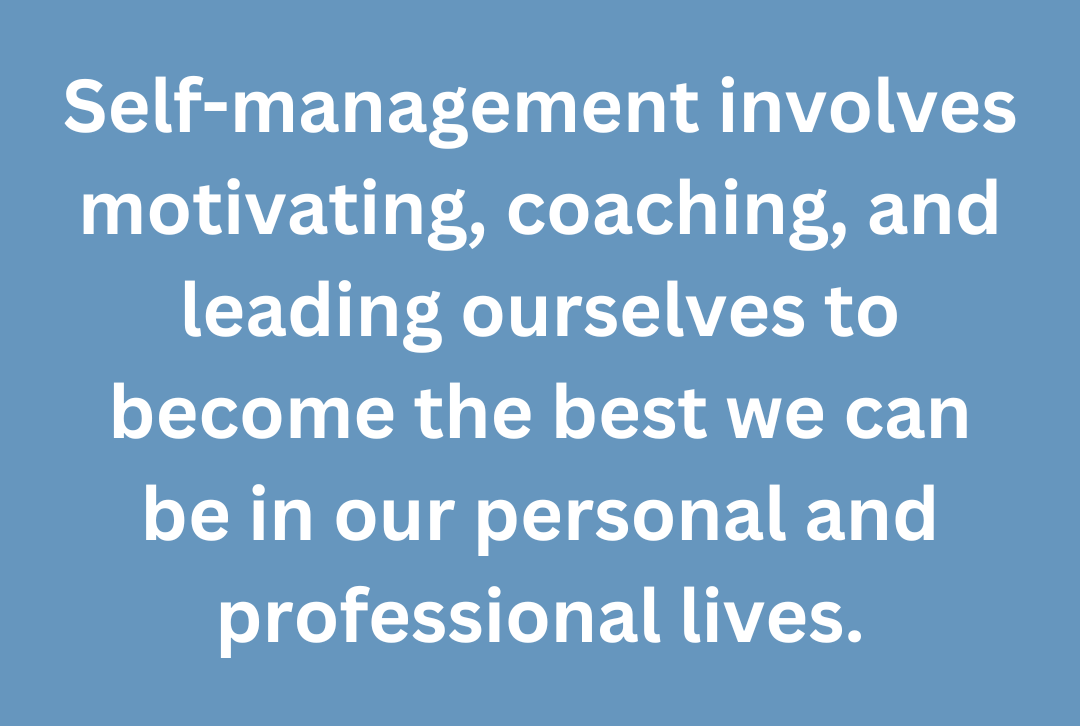
Although strong, successful self-managed leaders have the above-mentioned characteristics, it’s almost certain they didn’t start out that way. Becoming an effective, self-managed leader takes a lot of emotional intelligence with a heightened sense of self-awareness and self-discipline.
If you want to take a clear step towards stronger leadership, then work to improve your self-management skills. Keep a tight grip on your negative emotions. Work on demonstrating trustworthiness. Be a conscientious leader. Strengthen your adaptability by embracing the inevitable changes that come your way. Take the initiative to become achievement-oriented. The results from this effort will be a dedicated team that follows you because of the type of leader you are and not because of your title and authority.
If you have been helped by this post, we invite you to read more articles on our blog. If you want to go further with self-management and other aspects of emotional intelligence to positively impact your leadership, then consider working with us 1on1 or request a class for your team.
Read our guide, “10 In-Demand Skills for Leaders in 2024,” here.
For more resources on management, watch this video:
Photo copyright: Featured photo is from ©Mikhail Nilov via Pexels. Secondary photo is from ©Kampus Production via Pexels.
